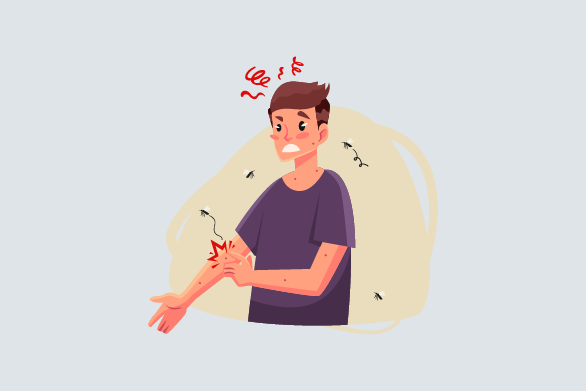
DM - Infectious Disease
- 4 Colleges
Infectious disease, a type of disease that is caused by infectious agents mainly microorganisms like fungi, bacteria, viruses etc,.
Infectious disease, a type of disease that is caused by infectious agents mainly microorganisms like fungi, bacteria, viruses etc, is responsible for the death of millions of people. The nature of the disease is highly contagious and can even impair the health of the entire population if proper preventive measures are not followed. Transmission of infectious disease can be directly like human to human, or indirectly like contaminated water or air. Infectious agents are considered as the source of disease for example bacteria for causing typhoid, viruses for causing flu, AIDS, dengue etc. Thus it becomes very important to have the awareness of infectious agents and knowledge of the right practices for the prevention of infectious diseases. Tuberculosis is the deadliest of all the infectious diseases, it kills more people than any other infectious diseases like malaria, flu, chickenpox, dengue etc. And the rapid increase in the cases of HIV has propelled the need for special knowledge in the diagnosis and treatment of infectious diseases. the past deadly outbreaks like Ebola, Nipah virus, SARS has called for a deep understanding of this discipline to be able to identify the risk in the future. India’s distinct demographic profile and rapidly increasing population are the prime reasons for the specialization in this domain. The future scope of the discipline looks very promising with the introduction of new generation vaccines that are based on recombinant proteins along with ongoing development and research in the study of DNA.
DM in Infectious disease is a thoroughly guided and highly supervised course. The purpose of the course is to provide intensive didactic information and first-hand practical experience of laboratory training in this field of medicine. It is aimed at students wishing to pursue a career in the speciality of the infectious disease medical system. The course is designed to prepare the students in all aspects of infectious disease along with its allied subspecialties of syndromic approach to disease like urinary tract infection upper respiratory tract infection, sepsis syndrome, CNS infections, cardiovascular infections; etiological agents of infectious disease like viral diseases, bacterial diseases, mycoses; outbreak investigation, exotic infections; many other concepts. With the growing number of complications in the cases, it has become important to specialise the learners in the essential principles of infectious disease so that they can render their consultative assistance too. It is expected that during the course the students will gain proficiency in many aspects of medicinal science and will be able to cater to the needs of the patient in alliance with various health policies like the national AIDS control programme, national vector-borne disease control programme and many other. The student will get to develop skills like professionalism, interpersonal and communication. The curriculum is designed in such a manner that it demands participation in research work, clinical audit, seminars, journal clubs, case conferences and discussions, viva, grand round presentations and practical exposure of first-hand knowledge and theories of teachings. The curriculum also provides additional competency in laboratory diagnosis of infectious disease, preparation of stains for microscope examination of the specimen, drug therapy, resistance testing, statistics methods, diagnosis of infectious disease in the pediatric patient, identification of anti-infective drugs, and other areas. Overall, the course prepares the students for a highly skilled job through both intensive didactic lectures and practical projects in all facets of infectious disease.
The course can be taken by the candidates who have completed M.D. in Medicine or Pediatrics or Microbiology or Tropical Medicine from a recognized university. The duration of the course is 3 years. A career in this field is very promising as one can seek employment in sectors like government hospitals, private clinics, research centres, laboratories, health care centres, medical universities and many more. The job roles offered are infectious disease specialist, professor, consultant, researcher, and many others. And if one wants to enrich one’s understanding of this field, the option of further studies is always open.
